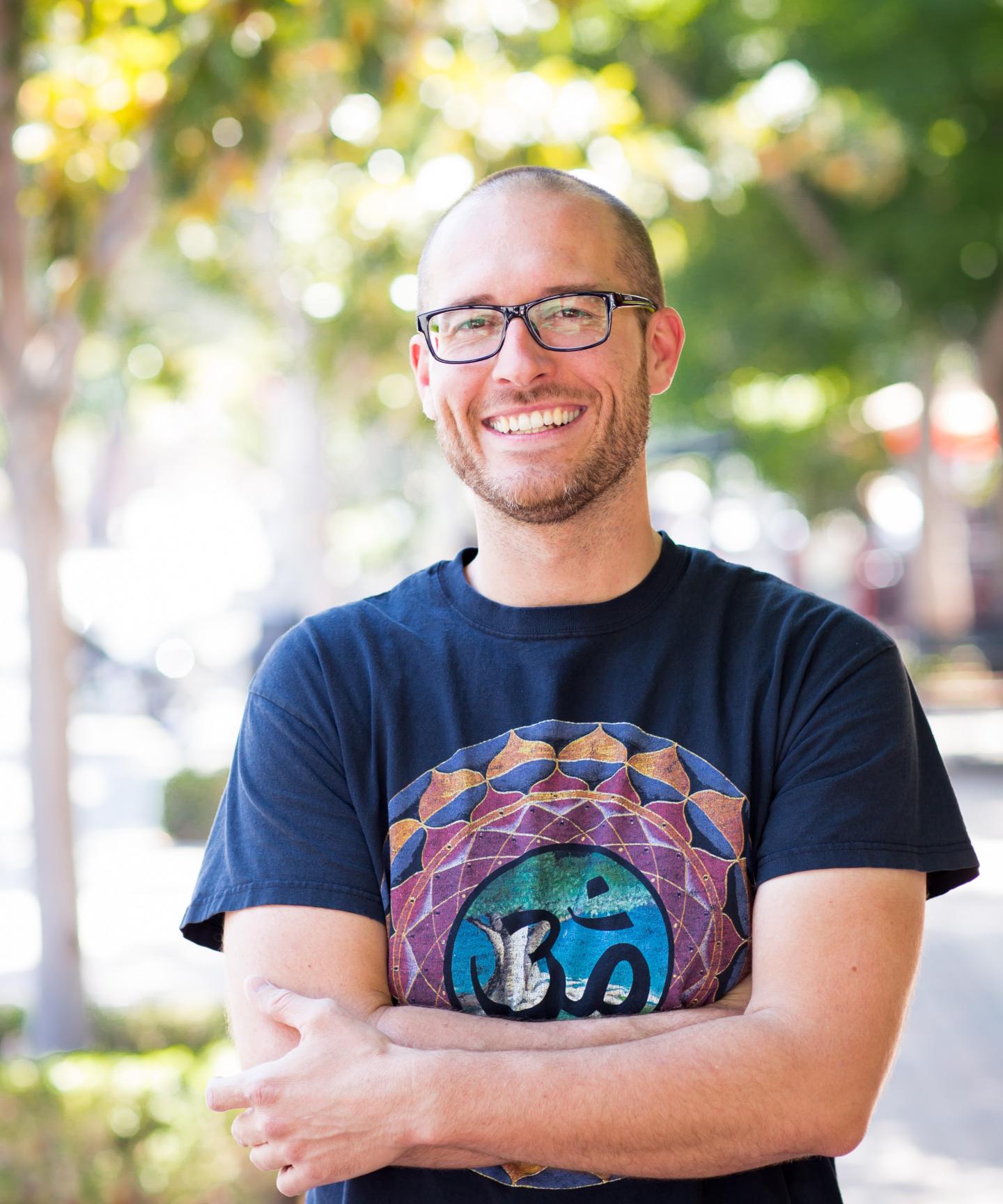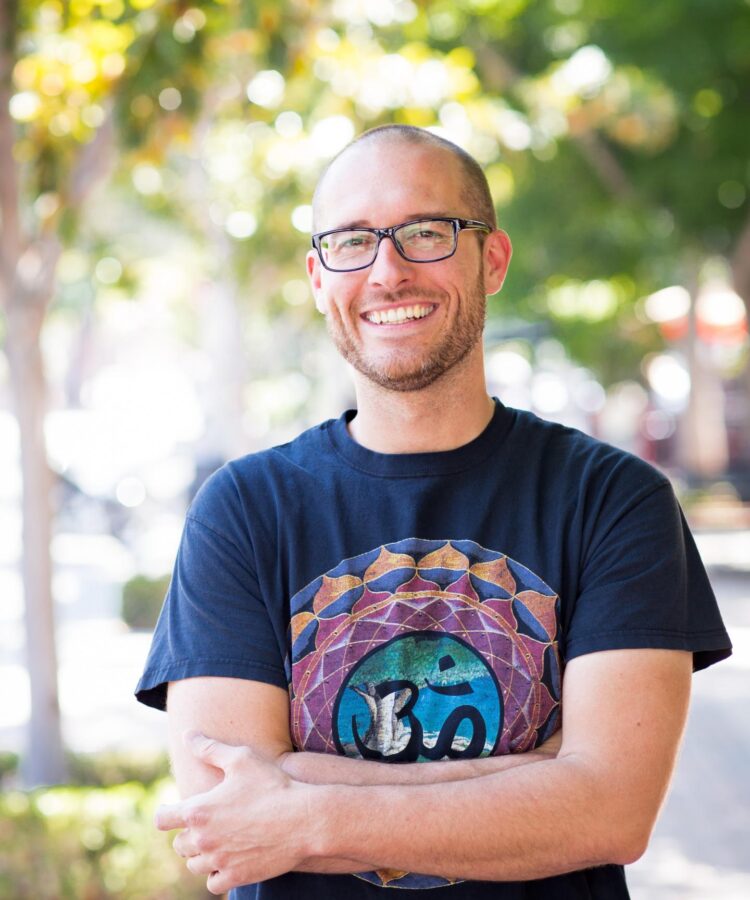Nathaniel Gabor’s lab develops experiments to bridge vastly different scales of size, energy, and complexity

Credit: UC Riverside.
RIVERSIDE, Calif. — Last year, physicist Nathaniel Gabor was one of two faculty members at the University of California, Riverside, awarded the Presidential Early Career Award for Scientists and Engineers, the highest honor bestowed by the U.S. government for scientists and engineers at the beginning stages of their careers.
The award to Gabor includes a $1 million research budget from the Air Force Office of Scientific Research, starting next month, which will allow him to study individual bacteria undergoing photosynthesis, while asking fundamental questions about the connection between molecular scale processes and organism-scale fitness.
“Work in my lab focuses on exposing basic operating principles in complex biological networks, a burgeoning field of study that bridges physics, biology, and chemistry,” said Gabor, an associate professor of physics and astronomy. “Our goal in this project is to simultaneously watch thousands or millions of single cells as they undergo photosynthesis, respiration, and reproduction, with the ability to look at one cell at a time.”
His lab will develop a new microscopy technique to take real-time measurements of bacterial growth in light, demonstrate a new paradigm for photosynthetic efficiency in single cells, and demonstrate a new optical spectroscopy technique to examine the physics of light harvesting.
“We anticipate that our measurements will give remarkably rich insight into microbial processes under illumination,” Gabor said. “In its simplest form, we will gain precise control of optical excitation at the single cell level. The expected impact of our work has the potential to upend the current state of knowledge of light sensing in biosystems.”
###
The research project will involve the participation of two graduate students and about four undergraduate students.
The University of California, Riverside is a doctoral research university, a living laboratory for groundbreaking exploration of issues critical to Inland Southern California, the state and communities around the world. Reflecting California’s diverse culture, UCR’s enrollment is more than 24,000 students. The campus opened a medical school in 2013 and has reached the heart of the Coachella Valley by way of the UCR Palm Desert Center. The campus has an annual statewide economic impact of almost $2 billion. To learn more, email [email protected].
Media Contact
Iqbal Pittalwala
[email protected]





